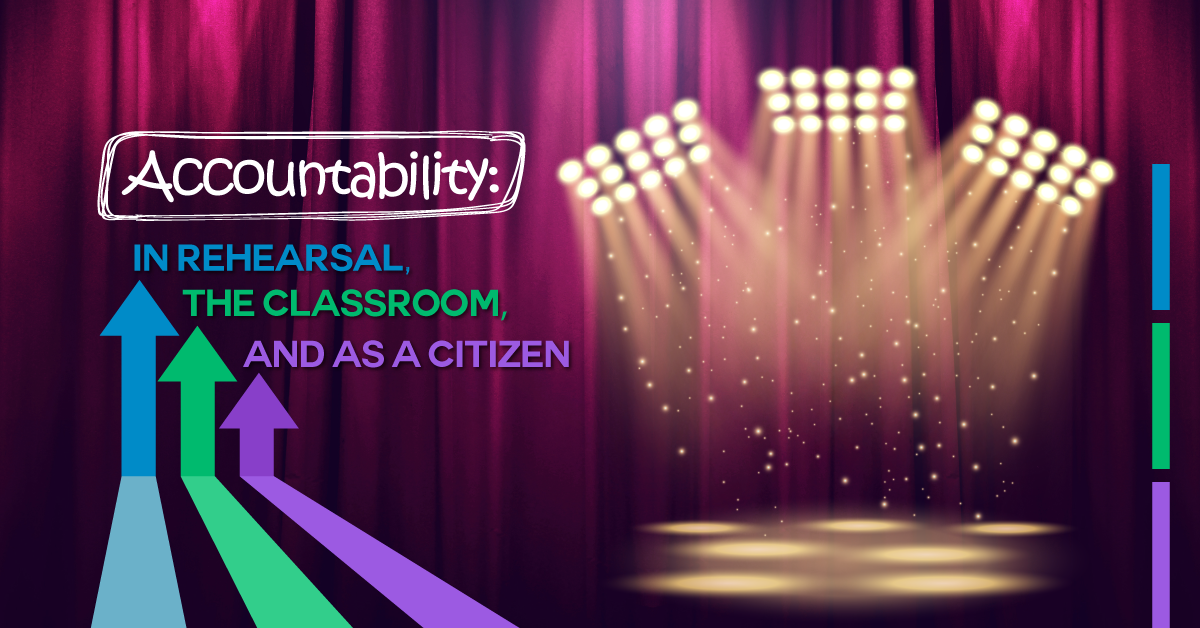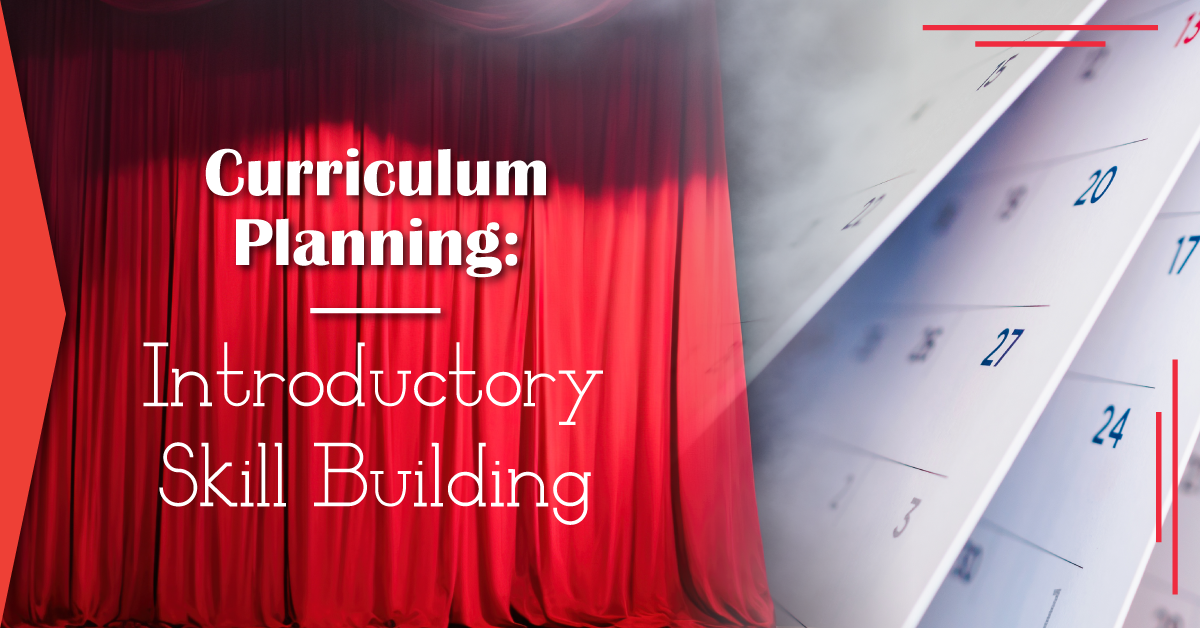Agatha Rex by Lindsay Price is a bold high school take on Antigone - packed with heart, conflict, and a powerhouse ensemble. One girl. One stand. One huge risk. *NEW COMPETITION VERSION AVAILABLE!*
Admirable Qualities in Drama Students, and How to Nurture Them
We reached out on Facebook and Instagram, asking educators what qualities they admire in drama students. We received so many fantastic responses and have compiled a list of 10 of the most frequent admirable qualities mentioned.
Your students undoubtedly already possess many of these qualities, which will also serve them in the real world. We’ve included some tips and links to articles that will help you nurture these qualities in your students, and help them grow and develop these qualities and skills even more — because practice makes progress.
1. Problem-solving skills
When problems arise, do your students figure things out themselves, or do they wait for you (or someone else) to step in? We want students to be able to problem-solve if something goes wrong, which it inevitably does in the theatre. Not only will this ensure that the show goes on, it’s an important skill that will serve students in their everyday lives.
You can help your students practice problem solving with the following exercises: Problem-Solving for Student Directors, Last-Minute Fill-In, and Putting on a Class Production: Problem Solving.
If your students are having trouble working together in groups, you can use these tips to help them learn to figure out their issues.
2. Taking initiative and willingness to help out
The next step up from solving problems independently is taking the initiative to identify what needs to be done and then doing it.
Have students practice their management skills by doing the Plan, Execute, Reflect Exercise. They can also work on their leadership skills by leading warm-ups.
If they have aspirations of working on a show in the future, they can work on developing the skills needed to do so, which includes taking initiative and helping out wherever they can.
So many students are conditioned to ask an adult before attempting anything, or don’t have the social awareness to think about what’s going on around them. Try the OTA Challenge (Observe, Think, Act) found in the giveaway below to help students practice taking initiative in the drama classroom.
3. Risk-taking and willingness to step outside their comfort zone
We encourage our drama students to take risks and step outside their comfort zones all the time. It’s not easy — students are often afraid of looking silly, and it can be hard to be vulnerable in front of your peers. It’s important to start with a strong foundation and build trust with your drama students through warm-up exercises and your own actions. This helps to instill confidence in your students to take risks and try new things, such as playing a difficult character. Knowing they are safe in the drama classroom to try different things, make mistakes, and try again allows students to take those risks. Which leads us to…
4. Perseverance
A famous quote attributed to Thomas Edison goes: “I have not failed. I’ve just found 10,000 ways that won’t work.” Our students are going to make mistakes and even fail at times. What matters is how they deal with it. They must pick themselves up, dust themselves off, and try again. So their scene fell a bit flat, or their audition wasn’t up to par. If students can extrapolate what they learned and apply it to their next attempt, they’re going to do great things. Never give up!
To help your students practice persevering through difficult situations, have them try scenario exercises such as Production Challenges or the “What If” Game. This will help them come production time, when they are working through the last few weeks before showtime, which can be challenging.
5. Commitment
There’s no way around this: drama class and participating in shows is a commitment. There are only so many hours in the day — are your students using them effectively?
Drama students need to hold themselves accountable to honouring their commitments to drama class and/or the show they’re working on, and avoid overcommitting themselves, which leads to burnout and stress. This article focuses on distance learning but can be applied to many situations concerning commitment, whether the student is learning in person or online. Remind your students that sometimes they need to make tough choices, but if they want to be part of the drama scene, they need to show up. And while they’re there…
6. Strong work ethic and drive
For a student to succeed in drama class, they have to want to be there and be willing to put in the work. Many students assume that drama is an easy A, which we all know isn’t the case. Sometimes students will realize that drama class is challenging, and will try to push back against the teacher. The length of the rehearsal process may frustrate other students, who forget that they spend more time in rehearsal than on the final product. Have these students circle back to perseverance and remember that putting in the work will pay off in the long run. The successful drama student takes their work seriously and makes the time to improve by memorizing their lines early, practicing at home, and using their time in class effectively.
7. Being a team player and collaborating with others
Unless your students are doing self-produced one-person shows, they’ll need to get comfortable working with others. In drama class and in the theatre, it’s necessary. And frankly, it’s more fun!
Teach your students about the difference between collaboration and teamwork using these tips and expert advice. Then, have them practice their teamwork and collaboration skills by creating a giant onstage, completing the Marshmallow Challenge, or trying various improv games for collaboration.
8. Ability and willingness to listen
Drama class is all about actively listening to peers, scene partners, and instructions and advice from the teacher. Whether it’s receiving notes and feedback, participating in an improvised scene, or collaborating on a group project, listening is so important, and a great drama student will actively listen and then put the learning, advice, and notes into practice.
If your students need practice actively listening (rather than just hearing), have them try these Hearing or Listening? and What Did You Say? activities.
If your students need some help receiving feedback or giving effective feedback, we’ve got tips and activities for that too.
9. Humility
Keep the “drama” on the stage, within the confines of the play, not in the drama classroom. Nobody wants to work with a diva, so students need to learn to keep their egos in check. That being said, it can be difficult for students who aren’t happy with the role they’re given or feeling discouraged about being in the ensemble. We need to teach students about keeping an ensemble mindset and remembering that everyone is there for the same reason: to learn and put on a great show together.
While we’re at it, remember those unsung heroes: the technicians, stage crew, and stage management. It’s easy for student actors to forget that unless they wish to appear onstage in the dark, in their street clothes, without music or sound, they need to respect the tech and stage management teams. They are the ones who truly make the show happen.
10. Compassion, empathy, and kindness
When it comes down to it, kindness, compassion, and empathy are king. These traits are essential for being a good human being, regardless of drama class. However, we can nurture these qualities in drama class with different exercises, such as finding empathy for the villain in a show you’re studying, analyzing your character without judgment, or literally walking in their shoes in rehearsal. You can then take these exercises a step further and use exit slips and reflections to think about how students can apply these exercises and activities to their everyday lives. Theatrefolk also has many plays focused on empathy that students can really sink into. So many students have expressed that drama class is a place where they can truly be themselves, so let’s continue to be that place where compassion and kindness are at the forefront of our teaching.



